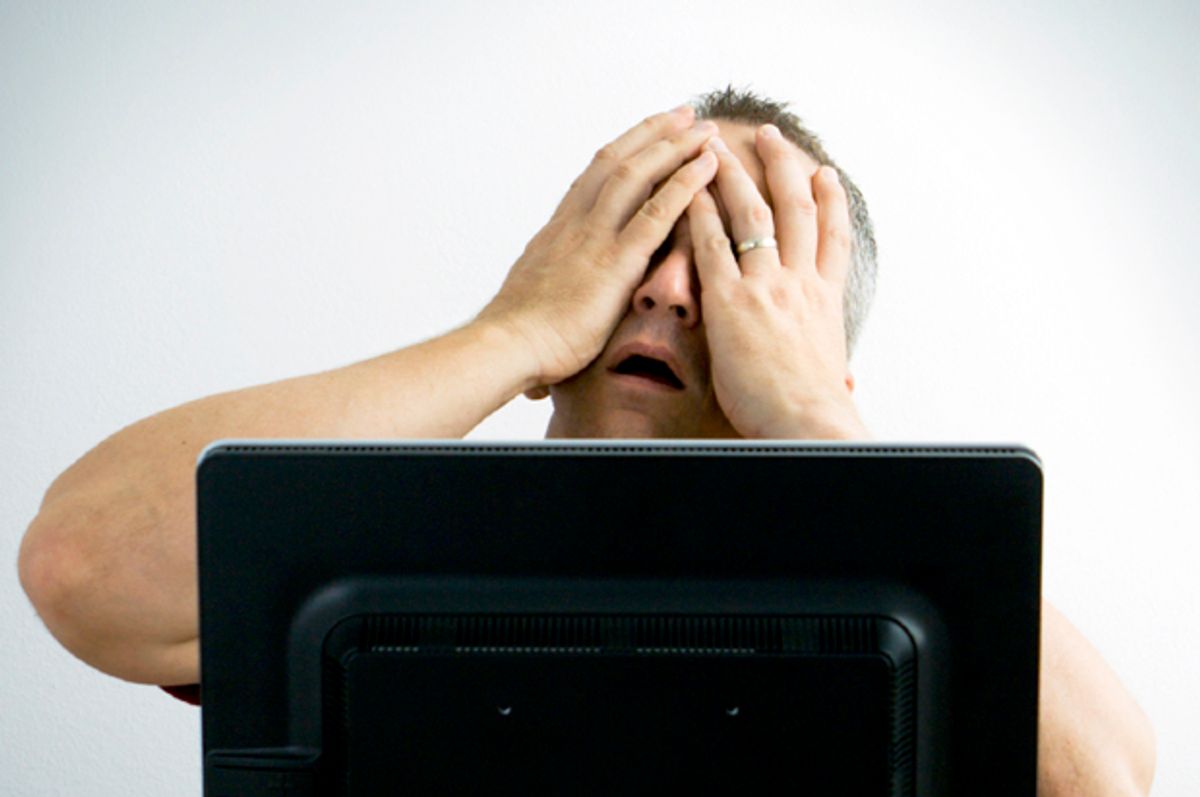Failure is a part of life, and we make mistakes pretty much every day. How do we cope? Or better yet, how should we cope?
Academics and the mainstream media tend to offer a simple solution: Don’t let it get to you and think about how things could have been worse.
These self-protective thoughts usually make you feel better. You move on.
But is it possible that popular wisdom is missing a bit of the puzzle? Does setting aside the negative emotions make you any less likely to repeat the mistake? Noelle Nelson, Baba Shiv and I decided to explore possible upsides of feeling bad about failure.
Feeling the pain
Even though they’re unpleasant, we feel negative emotions for a reason: They likely played an important role in human evolution and survival.
Negative emotions tell us to pay attention, signaling that something’s wrong — with our body, with our environment, with our relationships.
So if you avoid negative emotions, you also might be avoiding the thing that needs your attention. Could deciding to focus on the negative emotions associated with failure lead to thoughts about self-improvement — and, with time, actual improvement?
We designed a series of experiments to test this question.
In the studies, we used something called a two-stage paradigm: First participants attempted a task in which they failed; then — after series of unrelated tasks — they would have the opportunity to redeem themselves.
In one, we asked our participants to search the internet for the lowest price for a particular blender brand and model (with the possibility of winning a cash price if they were successful). In reality, the task was rigged. At the end, the participants were simply told that the lowest price was US$3.27 less than what they had found. We then asked half the participants to focus on their emotional response to having failed, while the other half were instructed to focus on their thoughts about how they did. Then we asked them to reflect, in writing, on how they felt.
After a few unrelated tasks, we gave the participants a chance to redeem themselves. In this seemingly unrelated task, we told participants to imagine that they were going to the birthday of a friend who wanted a book as a gift. We also told them that the book they find should be a bargain.
We found that participants who were previously instructed to focus on the negative emotions following their failure in the blender task spent nearly 25 percent more time searching for a low-priced book than those who had been instructed to focus on their thoughts.
When we examined the written responses, we also found some important differences.
Those who had focused on their failure — rather than dwelling on how they felt — tended to have defensive responses: “I didn’t care much about this anyway”; “It would have been impossible to find that price.”
In contrast, the participants who had spent time parsing their emotions produced thoughts oriented toward self-improvement: “If I’d only searched longer, I would have found that price”; “I gave up too quickly.”
Not all mistakes are the same
It appears that focusing on the emotions of failure can trigger different thoughts and behaviors. Perhaps when you reflect on how bad you feel after failing, it motivates you to avoid experiencing that feeling again.
But could this improvement migrate into other endeavors — for tasks unrelated to the original?
To test this question, we added a variation of the second gift scenario. Instead of telling the participants to find an affordable book (which involved a price search like the original task), we asked them to find a book that they thought their friend would like. In this case, it didn’t matter whether participants had focused on their emotions or thoughts after the first task; they spent similar times searching for the best gift. It seems as though the improvement only happens if the second task is somewhat similar to the original, failed one.
While “feeling your failure” can be a good thing, it doesn’t change the fact that this can hurt. There’s a reason people tend to instinctively rationalize or have self-protective thoughts after they’ve made a mistake.
It would be debilitating if you were to focus on how bad you felt after each failure, big and small. So it’s up to you to decide which failures to try to improve upon, and which failures to shield yourself from. Clearly, one-off events or inconsequential mistakes — taking the wrong turn in a foreign city or being late to a party with friends — don’t make the best candidates (hence the saying “don’t sweat the small stuff”).
![]() But if you’ve failed at something that you know you’re going to have to confront in the future — say, a task for a new role at work — pause and feel the pain. Use it to fuel improvement. If you focus on how bad you feel, you’ll probably work harder to ensure you don’t make a same mistake again.
But if you’ve failed at something that you know you’re going to have to confront in the future — say, a task for a new role at work — pause and feel the pain. Use it to fuel improvement. If you focus on how bad you feel, you’ll probably work harder to ensure you don’t make a same mistake again.
Selin Malkoc, Associate Professor of Marketing, The Ohio State University



Shares